The End of Your Rope
 “When you reach the end of your rope, tie a knot in it and hang on.” –Franklin D. Roosevelt.
“When you reach the end of your rope, tie a knot in it and hang on.” –Franklin D. Roosevelt.
Many can identify with the former president. Hard times hit, and you hurt. You wonder:
- How will I survive?
- Who can help?
- Why did this happen?
When you reach the end of your rope, you feel out of options.
Like a person hanging from a cliff with no more rope, you feel desperate. You have no:
- Strength
- Hope
- Patience
- Desire to continue
You are ready to give up. You want to throw in the towel.
Problems may be as simple as no time to do all you need to do. However, problems may also be life threatening.
Whatever the problem, hold on.
Tie a knot and hang on for dear life. Help may be on the way. Many people want to help, if you let them know your need. Once you receive what you need, pay it forward by helping someone else.
When you get to the end of your rope, remember two words: “But God.”
You may not know the answer, but God does.
- Troubles may not stop, but God walks with you through them.
- Uncertainty may remain, but God gives you peace in the midst of it.
- Life may look hopeless, but God offers hope for this life and the life to come.
When trials around you cause stress within you, look up.
“But you, God, see the trouble of the afflicted;
you consider their grief and take it in hand” (Psalm 10:14 NIV).
Thanks to Ann Knowles for the suggestion. Photo courtesy of Pixabay.
Do you have an expression you want explained? If so, please comment below.
Subscribe to receive my weekly posts by email and receive a free copy of “Words of Hope for Days that Hurt.”
If you enjoyed this post, please share it with your friends.
 On a trip to Minneapolis years ago, I caught a plane just in the nick of time. My first plane had engine trouble, so I had to change flights. That made me late for my second flight. As a result, I had to run through the airport about 1:00 a.m. to board my plane on time.
On a trip to Minneapolis years ago, I caught a plane just in the nick of time. My first plane had engine trouble, so I had to change flights. That made me late for my second flight. As a result, I had to run through the airport about 1:00 a.m. to board my plane on time. Please welcome my friend Martin Wiles as today’s guest writer. Martin is the founder of
Please welcome my friend Martin Wiles as today’s guest writer. Martin is the founder of 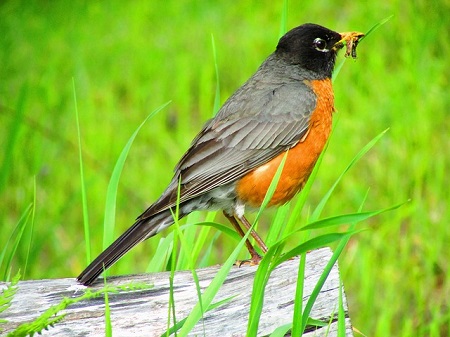 “The early bird gets the worm.”
“The early bird gets the worm.”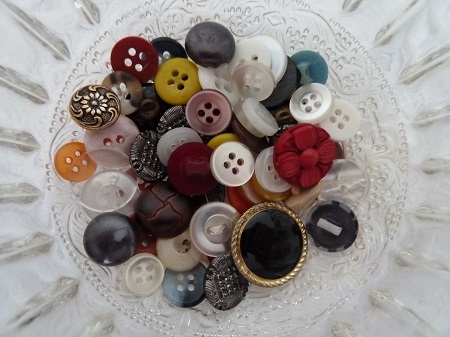 “Isn’t she the cutest thing? Why, she’s as cute as a button.”
“Isn’t she the cutest thing? Why, she’s as cute as a button.” As a child, I spent hours playing with my Granny Childress’s buttons. Since she sewed for others, she always had boxes of buttons.
As a child, I spent hours playing with my Granny Childress’s buttons. Since she sewed for others, she always had boxes of buttons. The water from
The water from  Frogs give me the heebie-jeebies. Big ugly frogs. Cute little frogs. All frogs. They jump too fast. Plus, a friend once had a frog get tangled in her hair.
Frogs give me the heebie-jeebies. Big ugly frogs. Cute little frogs. All frogs. They jump too fast. Plus, a friend once had a frog get tangled in her hair.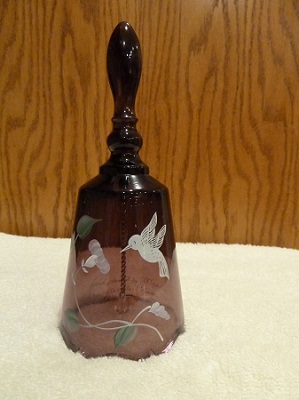 Saved by the bell means we escape a difficult situation at the last moment.
Saved by the bell means we escape a difficult situation at the last moment.  Our greatest salvation comes through Jesus’ death on a cross.
Our greatest salvation comes through Jesus’ death on a cross. If I want all of something, I want the whole kit and caboodle. For example, I would love to visit all the national parks. So far,
If I want all of something, I want the whole kit and caboodle. For example, I would love to visit all the national parks. So far, 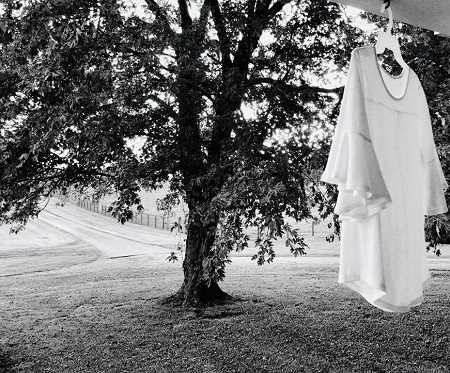 “Don’t worry about it. It will come out in the wash.” Those words have probably helped many of us deal with problems or disappointments.
“Don’t worry about it. It will come out in the wash.” Those words have probably helped many of us deal with problems or disappointments.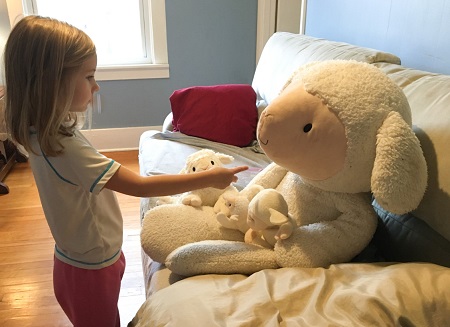 “If that is what you think, you have another think coming!” Sadie’s poor sheep are in trouble.
“If that is what you think, you have another think coming!” Sadie’s poor sheep are in trouble.